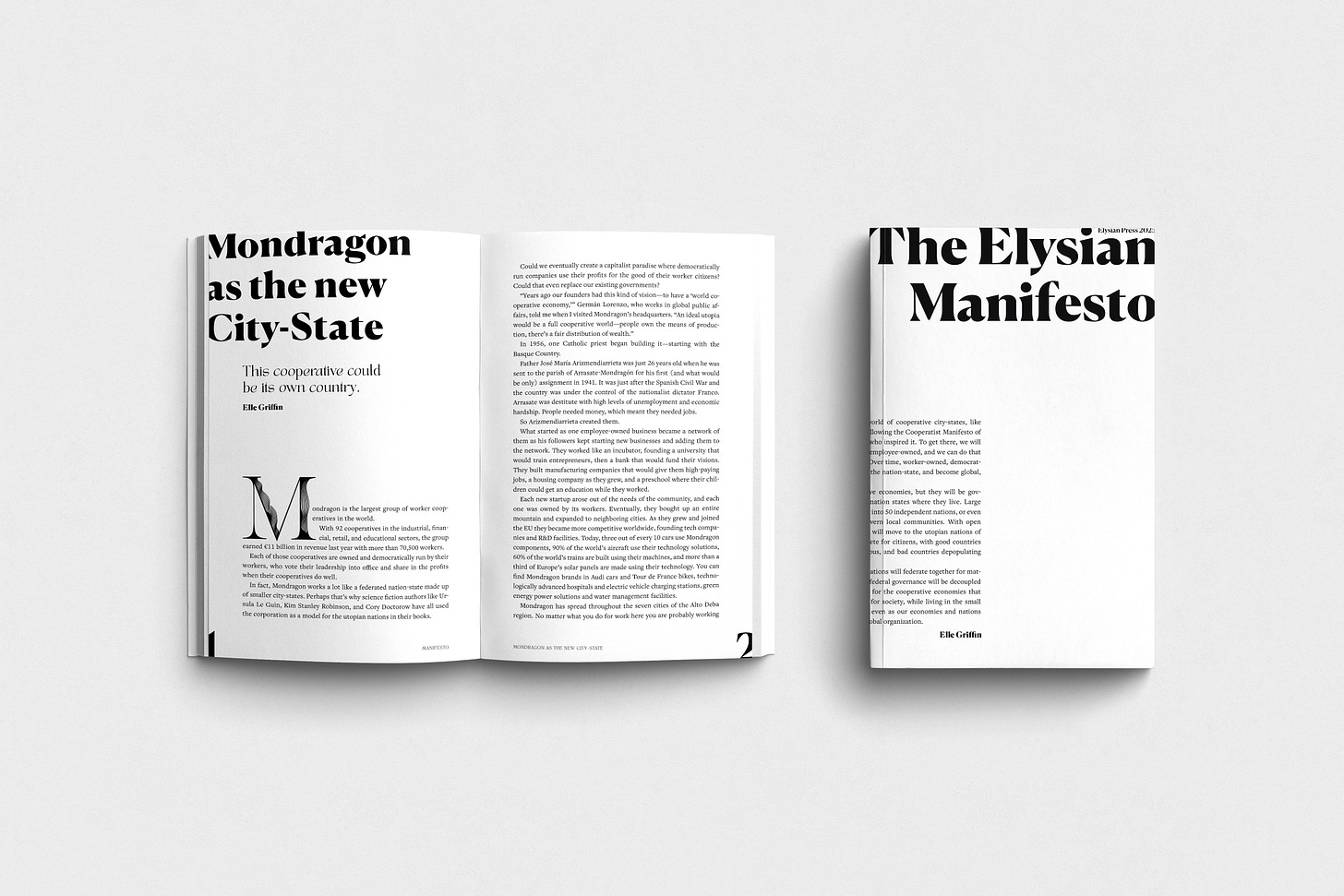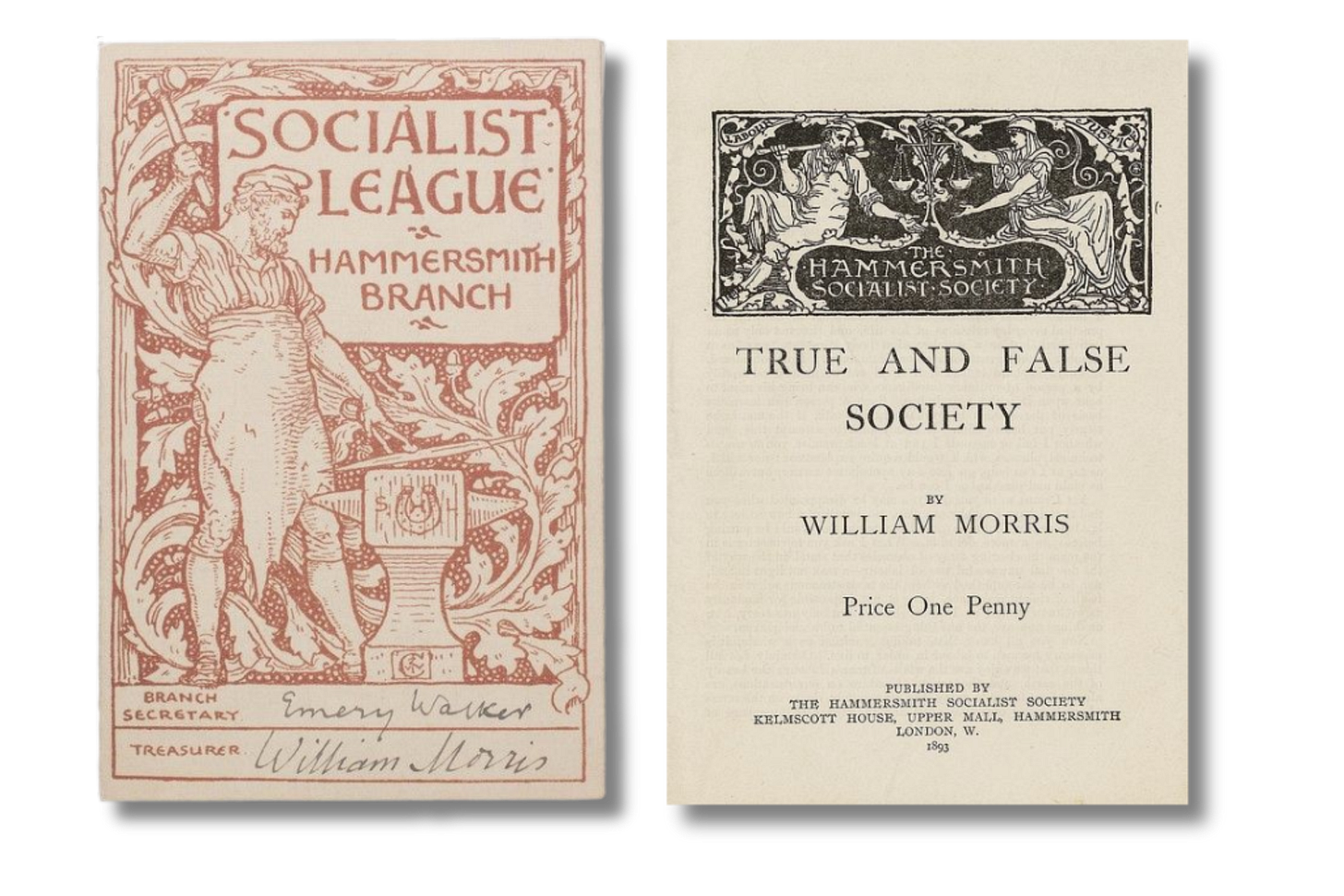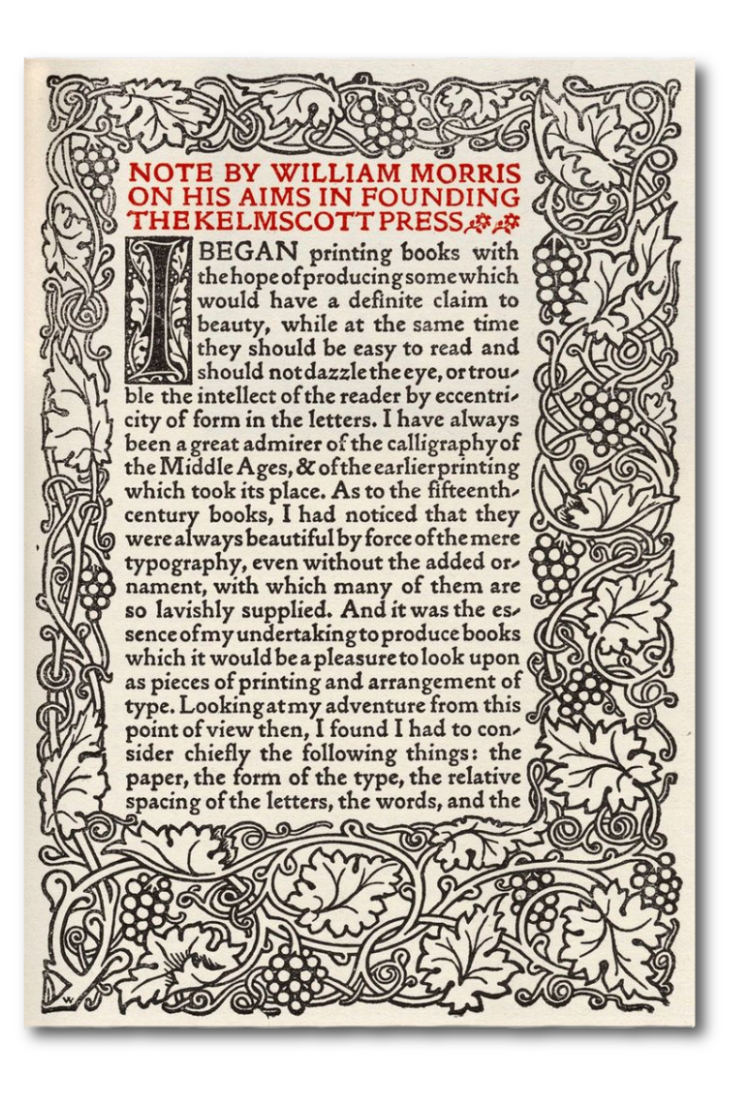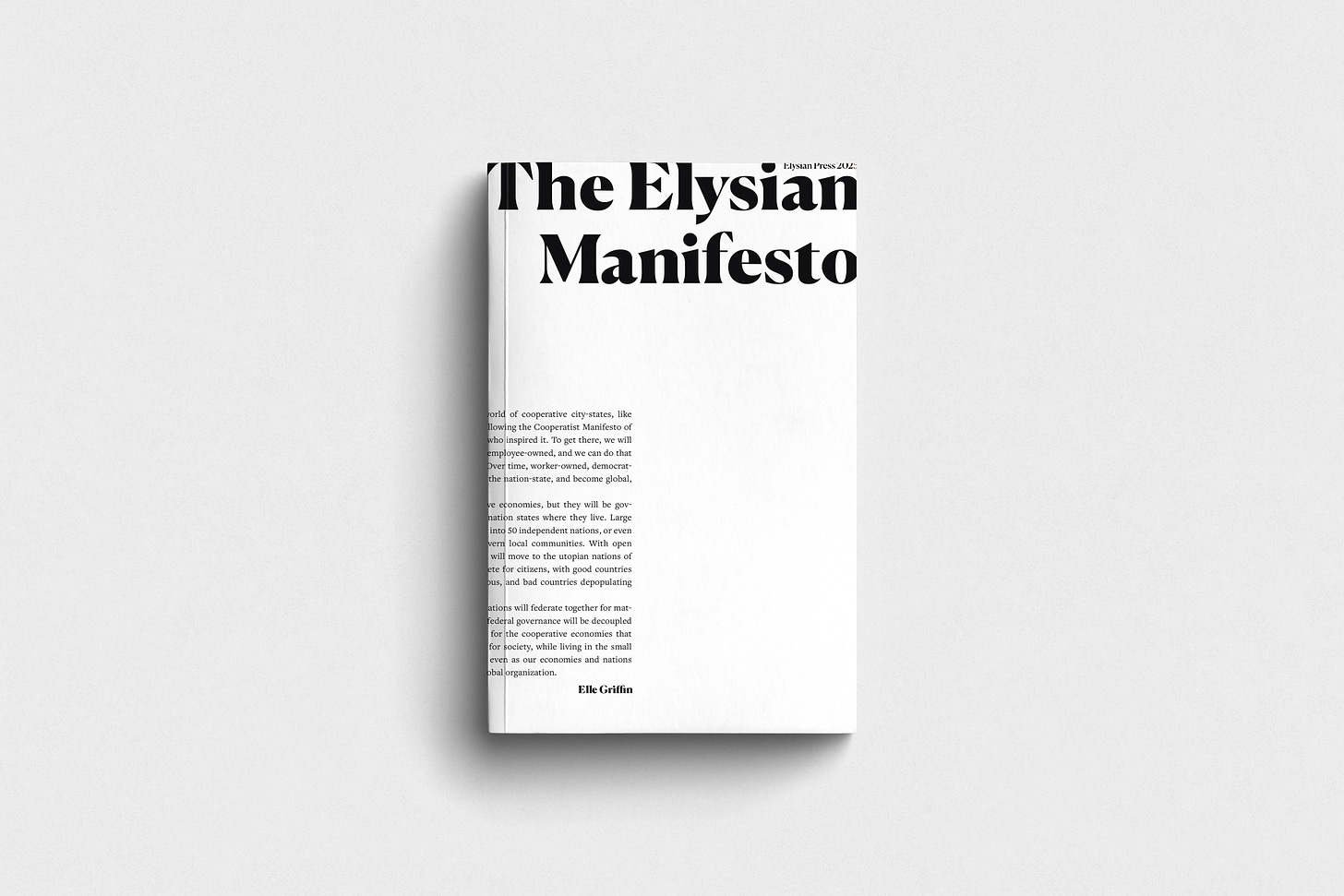We're reinventing the social club—here's our Manifesto
An homage to William Morris and the social clubs who imagined a better future before us.
If you’ve joined the Elysian Collective in the last two years, you might not know that I’ve modeled our organization after old social clubs. Specifically, one founded by William Morris in 1890 London.
Morris’ London was an industrialized hellscape. He called it “‘slums;’ that is to say, places of torture for innocent men and women; or worse, stews for rearing and breeding men and women in such degradation that that torture should seem to them mere ordinary and natural life.”
But Morris imagined a more beautiful future, and he worked to create it as the founder of his local socialist league. He hosted salons in his living room and published print pamphlets on the important ideas of his time—solutions to the ills of industrialization and the failures of capitalism.
He also actively built that future as the owner of an artisanal furniture and textile company, the father of the Arts & Crafts movement, and author of one of my favorite utopian novels: News from Nowhere.

Morris’ vision of the future was artisanal, handcrafted, and decidedly analog. He imagined us living simple, beautiful lives surrounded by nature—all of us contributing to and benefitting from the communities we lived in. He even had his own printing press, which published his pamphlets and novels with exquisite ornamentation.
Much of my life and work might be considered an homage to Morris. I have searched for his books in used bookstores around the world and devoted a section of my library to his works. I have visited his childhood home in London, and wallpapered my office in Morris-inspired patterns. I love artisanal crafting, spending my time on analog activities, and am writing a utopian novel that will be my entry into his tradition, and left behind for future centuries to enjoy.

More than that, I am building a media collective that is modeled on his social club—one that already publishes ideas and hosts salons, is now starting to publish print pamphlets and books, and will soon be hosting salons in my own living room, just as he did. We are even experimenting with ownership models and governance structures that might make him proud—where independent writers federate together to share ideas, publish pamphlets, and share the profits. Where readers support us as members, gain access to our collective writings, and contribute to the thought process. Where patrons at higher tiers support us to do all of the above.
Because the social clubs of Morris’ day went on to change the world. Why shouldn’t a modern social club do the same?
The challenges we face today are different. Morris was navigating industrialization, the poverty that resulted from capitalists owning the factories and paying workers a pittance, and the black soot that hovered over London like clouds. Socialism, as he devised it, wasn’t the answer, but it became part of it. Today, most of Europe has social programs that support workers, and I think Morris would find London vastly improved from his day.
Today, we have new horizons to reach. We are facing a new Gilded Age, a technofeudalism established by the influence of global tech platforms, rising autocracy and power consolidation at the top, geopolitical uncertainty resulting from large superpowers with even larger weapons, and all of these things affecting the earth we live on and the communities we live in.
As in Morris’ day, we need to come up with solutions. We won’t know yet know if they are the right ones, but we should create a better vision for the future nonetheless.
That is the power of the social club.
Behind closed doors and in secret letters, we can come up with ideas. Through pamphlets and books, we can share our best ones. Through online discussions and in-person gatherings, we can debate them; and instead of saying to one another “that won’t work,” we can ask each other “what might?”
Together, we can come up with a future worth working toward. And we need every one of those idealistic visions to get us there.
Morris’ utopian novel took place in the year 2000, only 100 years removed from his time. With hindsight we can see a world transformed—not fully toward Morris’ vision, but much closer than it was then. One hundred years from now I hope we’ll look back on a world transformed again. That the beautiful future we nudged into existence began with words whispered in our living rooms, and written in pages printed for a small community to discuss. Not all of the ideas we had here were the best ones, but some of them might be.
That’s what we do here.
It only seemed fitting then, to create for our collective, a Manifesto. Like those that have come before mine, it is not right or wrong but merely a provocation—one way the world could go from here. The Elysian Manifesto is now available to new members: Paid subscribers will receive the digital edition delivered to their inbox, and subscribers at our Collector tier will receive the print version in the mail. I have already mailed the print edition to subscribers at our Collector tier, who receive everything we publish in print.
Patrons can also purchase a single copy using Metalabel.
However you choose to read and support our work, I enter this Manifesto into the utopian canon for one reason: To imagine a better future and inspire you to do the same. To encourage a world of utopian thinkers once more, and to create a writers’ collective that builds a better future together.
Thanks for joining us and dreaming with us,
Elle Griffin
Founder, Elysian Collective







Congratulations, Elle 👏! What a milestone for your collective.
Never heard of Morris but you are an inspiration